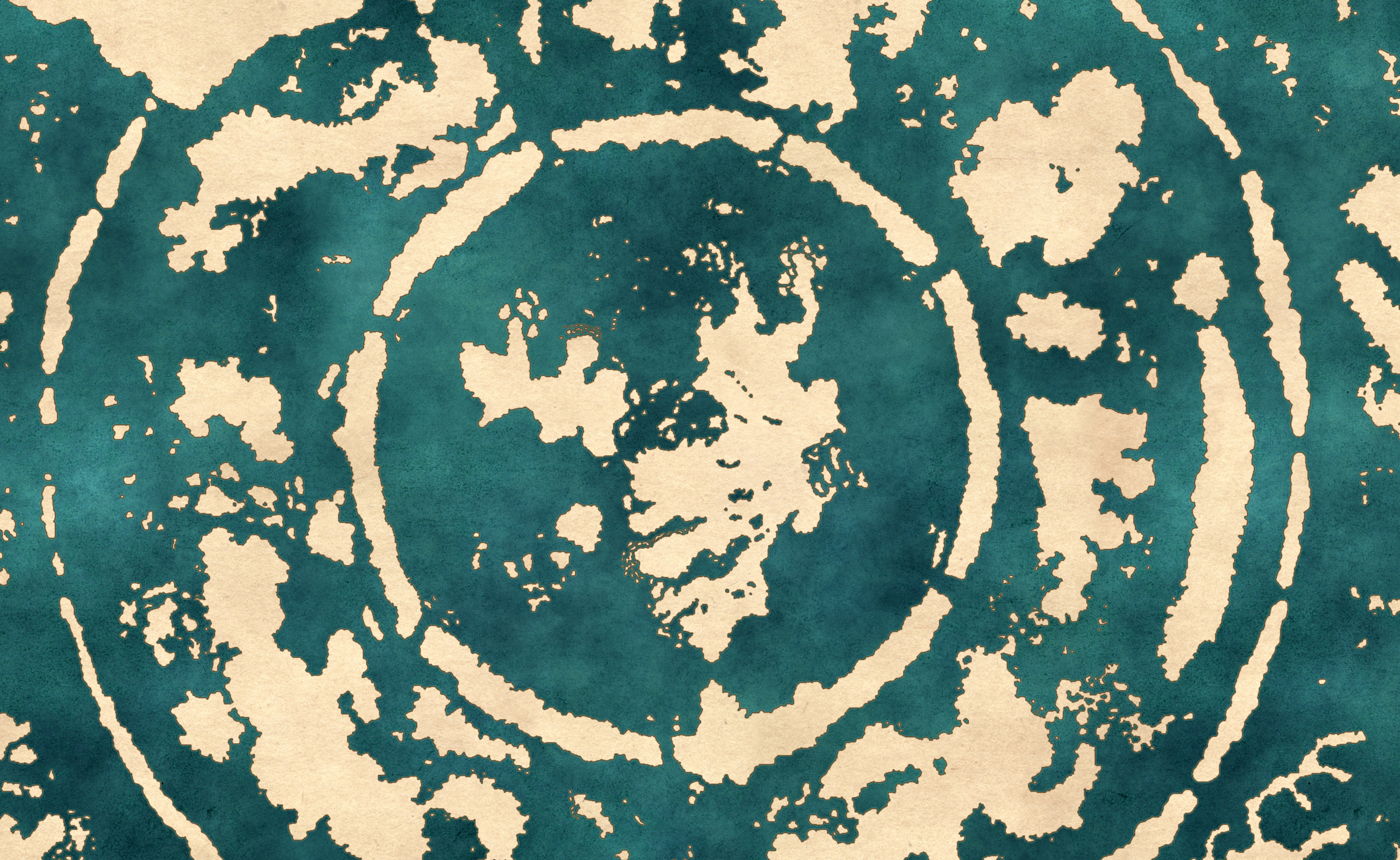Southern Continents
At the southern reaches of the midlands there are a series of seven frozen continents that separate it from the outlands.
All of the southern continents are extremely cold, being dominated by great snowdrifts and colossal ancient glaciers. Upon these features there are the many bizarre and seemingly alien species that inhabit the continents, their many otherworldly screams and howls echoing all across the frozen wastes. While some continents are teeming with countless unique species, others are devoid of permanent large land animals, and are simply empty wastelands of rock and ice.
The southern continents are the continents that divide the midlands from the outlands. The southern continents form a ring around the midlands, with the outlands on the other side of them. All 7 of the southern continents have similar features, they all have a very tall mountain range running along the length of them and a relatively thin passage of water between them. These passages of water lead to the outlands. The only currently permanent inhabited southern continent is Drakka, it has a large peninsula going north that people settled on ages ago.
Fauna & Flora
The southern continents are home to innumerable forms of life. These animals and plants often appear to be very bizarre and alien to outsiders, and all of this diversity endures on some of the most inhospitable cold conditions on Panthea.
The biodiversity of the southern continents is somewhat varied between each continent. Directly south of Cocar is the continent of Drakka, which is home to a diverse ecosystem and most of it's wildife is exclusive to the continent. West of Drakka there is the continent of Ensa, which has similar amounts of biodiversity. The continent to the east of Drakka, Meridum also has a similar amount of wildlife.
Going further west beyond Enska and wrapping around the midlands, on the other side there is the continent of Omnora which has notably less large animals but still supports large herds of animals.
Further west beyond Omnora there are the continents Voysov, Skall, and Glacius, all of which are completely devoid of large land-animals and only having small lichens and mosses growing on them. These three barren continents are all west of Omnora, and if you go further west beyond these continents you loop back around to Meridum, which is directly east of Drakka. The exact reason for the lack of life on Voysov, Skall, and Glacius is unknown, as they have similar conditions to other southern continents, and to add the mystery fossils and historical records of large animals have been found on these continents that date back to only a few hundred years ago.
Flora and fauna is similar on most southern continents, suggesting that they were connected in some way in the past. It is possible that the straits between the southern continents were closed off in the distant past, but the fact that sea life in the midlands and outlands consists of many of the same species makes this unlikely as they would have had no way of crossing between the midlands and outlands. Although there are many species that exist on every southern continent, the fact that they became disconnected a very long time ago has allowed life on each continent to diversify, leading to the southern continents being rich in biodiversity despite them all being mostly frozen tundra.
Some predatory animals native to the southern continents are gennungens, atuagas, and ice worms.
Some notable animals found on the southern continents are megalos, galnon, and many other species.
There are also many omnivorous animals, some that eat mostly plants and some that eat mostly meat.
Included Locations
Remove these ads. Join the Worldbuilders Guild









Comments